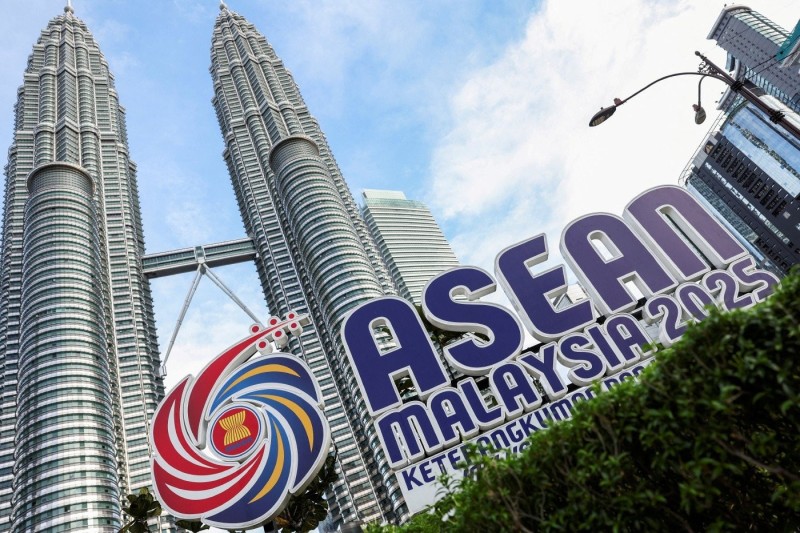
KUALA LUMPUR: Malaysia has emerged as the biggest winner in securing tariff exemptions from the United States (US), outpacing its Asean peers, economists said.
The deal comes amid scepticism in business and political circles about the urgency and terms of the trade agreement.
Some trade-watchers have questioned whether Malaysia sacrificed too much to secure access to the US market, flagged by talk of "red-lines" being crossed and sovereignty concerns.
The US had threatened a 25 per cent tariff on Malaysian exports unless bilateral talks succeeded.
Malaysia had earlier announced it would not impose retaliatory tariffs, instead preferring engagement and diversification of markets.
Investment, Trade and Industry Ministry's latest FAQ statement issued late on Monday sought to reassure stakeholders that national policy and sovereignty remain intact.
The ministry emphasised that Malaysia retained full authority based on its own laws and that the agreement "does not cross our red lines".
In a detailed release, it said the US tariff on Malaysian exports, among others, had been reduced from 25 per cent to 19 per cent, achieved without compromising the nation's sovereign right to implement key policies.
Over 60pct US Exports Tariff-Free
CGS International Research economist Nazmi Idrus said more than 60 per cent of Malaysia's exports to the US now enjoy zero-tariff status - the highest in the region, ahead of Thailand and Vietnam.
"Post the Oct 26 tariff exemptions, our calculation shows that Malaysia now has over 60 per cent of products exempted and Thailand and Vietnam at over 40 per cent," he said.
Nazmi said despite the concessions, exposure to US tariffs remains uneven across the region.
He noted that Vietnam remains significantly exposed, with tariffs covering 16.1 per cent of its gross domestic product, reflecting its export-driven economy and reliance on the US market.
"For Malaysia and Thailand, direct exposure is reduced to single digits. For Indonesia and Singapore, despite not being accorded the Oct 26 exemptions, direct exposure remained low," he added.
Economist Dr Geoffrey Williams said Malaysia's relatively strong outcome reflected a combination of strategic trade concessions and investment pledges.
"The key factors appear to be, first, Malaysia zero-rated more than 1,000 US products in return for 1,700 zero-ratings on exports to the US.
"Second, Malaysia committed to reducing non-tariff barriers. And third, Malaysia agreed to significant investments in the US, including at least US$70 billion in job-creating ventures as well as large-scale purchases and procurement from US firms," he told Business Times.
Williams said without these reciprocal commitments, Malaysia's position would have been similar to its neighbours.
"Otherwise, this is a standard deal for Malaysia, which still faces significant reciprocal tariffs on almost 90 per cent of exports by value to the US," he said.
Trade Edge
Bank Muamalat Malaysia Bhd chief economist Dr Mohd Afzanizam Abdul Rashid said Malaysia has long been a key US trading partner, particularly in the semiconductor sector since the 1970s.
"Hence, imposing tariffs would mean hurting their own businesses."
Afzanizam added that Malaysia's sizable rare earth element (REE) deposits also play a strategic role in the trade relationship.
"Given that the US would ensure uninterrupted supplies of REE, it makes sense for the US to offer a deal that could be beneficial for both countries," he said.
However, Afzanizam cautioned that the current arrangement could change depending on political developments in the US.
"Judging from how the Trump administration prescribed its policies, it was seen to be quite ad hoc, with extensive use of Executive Orders. These orders can be effectively revoked by the next president.
"On that note, the situation is very fluid and results in a high degree of uncertainty, especially among businesses," he said.
Mohammad Khair Afham, senior lecturer at MILA University's School of Management and Business, said Malaysia's success in securing exemptions was tied to its efforts to make trade with the US easier and more predictable.
"From a trade policy perspective, when a country reduces administrative and regulatory costs for its trading partner, it often gets tariff preferences in return."If Malaysia recognised more US standards and simplified trade procedures, it would have made it easier for the US to extend exemptions," he said.
Mohamad Khair noted that the outcome was not necessarily a sign of superiority over other Asean countries but rather a reflection of Malaysia's ability to align with US objectives at this stage.
"The outcome is useful but not guaranteed. Malaysia will need to maintain cooperation, stay relevant in US supply chains, and keep trade costs low to preserve this advantage," he added.
Source: https://www.nst.com.my/business/economy/2025/11/1308632/malaysia-tops-asean-us-tariff-exemptions-say-economists

